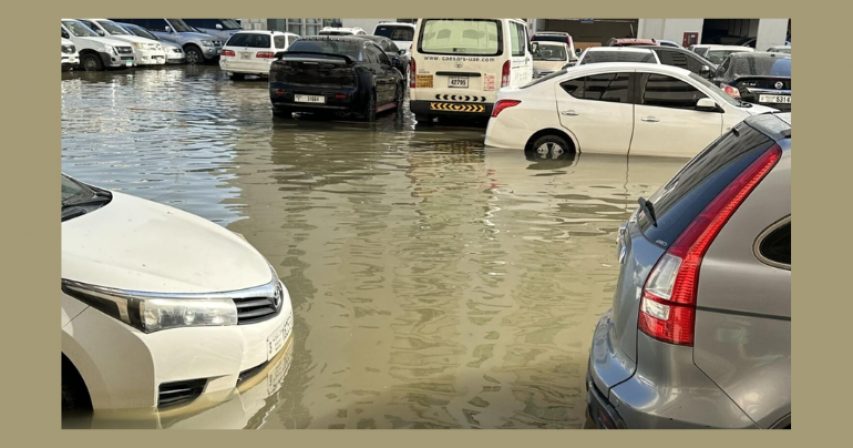Employees ask to work from home as vehicles remain submerged in parking lots

As the UAE grapples with the aftermath of record-breaking rains and subsequent floods, many motorists find themselves facing a nightmare scenario: their vehicles submerged in waterlogged parking lots, unable to start due to water seepage into the engines. The situation has not only left individuals stranded but has also prompted requests from employees to work from home as they struggle to find alternative transportation solutions.
In areas such as Abu Shagara, Jamal Abdul Nasir, Al Majaz, Al Warsan, Discovery Gardens, and Mudon, among others, vehicles remain submerged in flooded parking lots, rendering them inaccessible for commuters attempting to return to their offices. With vehicles trapped in water for several days, motorists are left with limited options and mounting challenges in resuming their daily routines.
For many employees in Dubai and Sharjah, the past week has been marked by remote work arrangements as they navigate the logistical hurdles posed by the floods. With their vehicles immobilized and inaccessible, working from home has become the only viable option for individuals like PM, a sales and marketing executive in Abu Shaghara, Sharjah. Despite special permission from his office to work remotely, PM faces uncertainty as he waits for the water to recede and assess the damage to his submerged vehicle.
The process of documenting the damage and initiating insurance claims adds another layer of complexity for affected motorists. Despite comprehensive insurance coverage, individuals like PM find themselves navigating the intricacies of insurance policies, with third-party insurance plans failing to provide adequate coverage for flood-related damages. As they await the receding of floodwaters, many car owners are left in limbo, unable to access their vehicles or initiate the claims process until conditions improve.
Faisal Ahmed, a resident near International City, recounts the chaos and uncertainty surrounding the flooded parking lots. With vehicles hastily relocated to ground-level parking areas, even these spaces are not immune to flooding, leaving residents with few alternatives for transportation. Like many others, Ahmed finds himself reliant on remote work options until his vehicle becomes operational or alternative transportation arrangements can be made.
The challenges extend beyond logistical concerns to include the emotional and financial toll on affected individuals. Abu Aiman, a resident of Al Majaz in Sharjah, describes the frustration of discovering his submerged vehicle and the subsequent scramble to find alternative transportation solutions. With his daughter's exams looming, Aiman faces added pressure to secure transportation for her while navigating his own commute challenges.
As the UAE grapples with the aftermath of the floods, the resilience and adaptability of its residents are put to the test. From navigating insurance claims to seeking alternative transportation solutions, individuals affected by the floods demonstrate resilience in the face of adversity. However, the lingering impact of the floods serves as a sobering reminder of the vulnerability of infrastructure and the importance of preparedness in the face of natural disasters.
By: Sahiba Suri





Comments